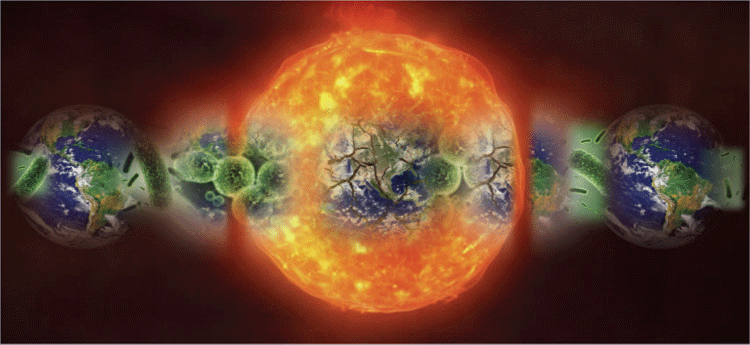The Microbiologists’ Warning: a Warning from All Microbiologists’ to Humanity
Rick CavicchioliMicrobiology Australia 40(3) 99-99 https://doi.org/10.1071/MA19043
Published: 17 September 2019
The Microbiologists’ Warning is a Consensus Statement proclaiming that microorganisms are so critical to achieving an environmentally sustainable future that ignoring them risks the fate of Humanity. It aims to raise awareness of the microbial world and make a call to action for microbiologists to become increasingly engaged in, and microbial research to become increasingly infused into, the frameworks for addressing climate change. We must learn not just how microorganisms affect climate change (including production and consumption of greenhouse gases), but also how they will be affected by climate change and other human activities.
Anyone with microbiology training, professionals and students alike, are encouraged to become part of the Microbiologists’ Warning by individually endorsing the Consensus Statement.
In addition to individuals, already more than 40 organisations representing national and international Academies and Societies have endorsed, including the Australian Society for Microbiology and the Australian Academy of Science.
The profile of the Consensus Statement has grown rapidly with the publisher website showing >65 000 accesses and an Altmetric score that is considerably higher than any other of the more than 2000 articles published by Nature Reviews Microbiology.
The Microbiologists’ Warning is intended as vehicle for ALL microbiologists to motivate change in many and varied ways.
The Consensus Statement is Open Access and is intended to be freely distributed and used.
A powerpoint presentation is available for making presentations for conferences, teaching and outreach purposes and can be accessed via a shared Dropbox link – it is available for anyone wanting to make presentations about the Microbiologists’ Warning; if the link no longer functions, contact Rick Cavicchioli.
Translations of the Consensus Statement are useful for allowing more scientists to read the article and are particularly valuable for enabling members of the media and general public to read and contemplate – even if the content is not fully comprehensible it will prompt questions to scientists and hence provide an important means of education and public understanding of the issues.
Currently, translations are being written in Chinese, Spanish, French, Portuguese, Greek, Russian and Turkish. A Word doc version of the publication to help translators is available – perhaps you or someone you know would like to translate into another language – if so, please contact me (r.cavicchioli@unsw.edu.au) to discuss and obtain the Word doc.
Things you can easily help with:
-
Read the Consensus Statement
-
Endorse individually. Endorsing as an individual is straightforward: click on the signatory site link, add a few details and submit.
-
Request organisations you are a member of to endorse
-
Distribute widely – amplify the message: email, Twitter, Facebook, LinkedIn
Things that will take a little more effort:
-
Translate the Consensus Statement into another language
-
Motivate the writing of additional statements emphasising a national focus
Food for thought:
-
An urgency exists for improving understanding about the links between microbes and climate change, and also more generally for improving microbial literacy in society – the two go hand-in-hand. One avenue for achieving this is for funding agencies to enact schemes to specifically address the microbiology of climate change and microbial literacy. A priority of the scheme would be linkages to national (ideally) or international businesses/organisations that demonstrate tangible incorporation of microbiology into their ‘thinking’ and improved public understanding of microbes. Another priority would be interdisciplinary research (e.g. microbiologists with modellers and physical scientists) linking microbiology to non-microbiology disciplines so that the research collectively targets the microbial dimensions that are currently missing. Also see the Call to Action (box 2) in the Consensus Statement.



